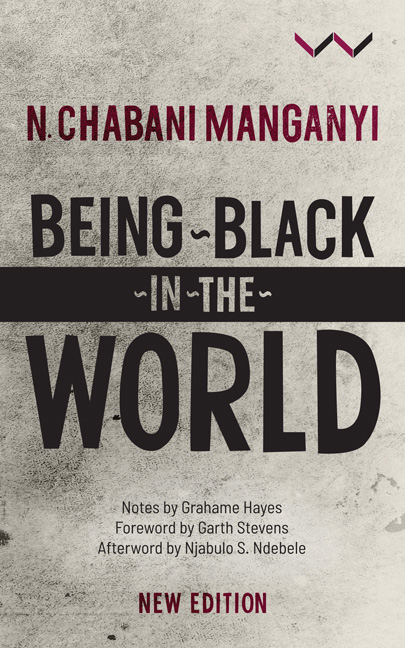4 - Being-Black-in-the-World
Published online by Cambridge University Press: 25 October 2019
Summary
The question regarding the usefulness and psychological meaningfulness of the concept of African personality remains essentially undecided. A recent review of its status by a noted scholar, though probably the most well formulated in the literature, poses more questions than are answered: LeVine (1970), whose guarded reserve is evident, has lucidly isolated some of the most thorny issues attendant on the concept and its development.
Areas of specific agreement between this author and myself are the following: First, all reasonable and informed observers will agree that part of the stalemate in the development of the concept may in large measure be attributed to partisan stereotyping such as is represented in the contributions of Carothers (1953) and the Johannesburg psychologist, J.C. de Ridder (1961). Second, with respect to personality structure, LeVine makes the important observation that there are various possible levels of abstraction in the analysis and description of personality which must always be recognised in any attempt at formulating personality characteristics of a group of people. This valid point is not always recognised. Third, I also support the proposition that African societies and cultures as compared to others outside Africa are in important respects distinctive.
The methodological problems attendant on the concept of African personality in its psychological connotations are very aptly expressed by LeVine (1970) in the following statement:
Thus ‘the African personality’ cannot be more than a matter of statistical tendency and is likely to show less uniformity across African populations than do patterns of culture.
Contributions in the area have tended to highlight an obtrusive conceptual mix-up between ‘patterns of culture’ and what some authors have described as ‘personality’. This mix-up has been a direct result of the failure to conceptualise personality structure as being essentially stratified, as being made of core and outer possible levels of abstraction.
The apparent and real semantic and other problems associated with the concept of African personality appear upon reflection to be of a fairly simple nature. These difficulties vanish from the scene the moment due recognition is given to the following considerations: Rather than ask the unwieldy question: Is there an African personality? it appears more legitimate to reformulate this as: Is there an experiential repertoire which may be considered distinctly African? I will return to this question a little later.
- Type
- Chapter
- Information
- Being Black in the World , pp. 46 - 56Publisher: Wits University PressPrint publication year: 2019



